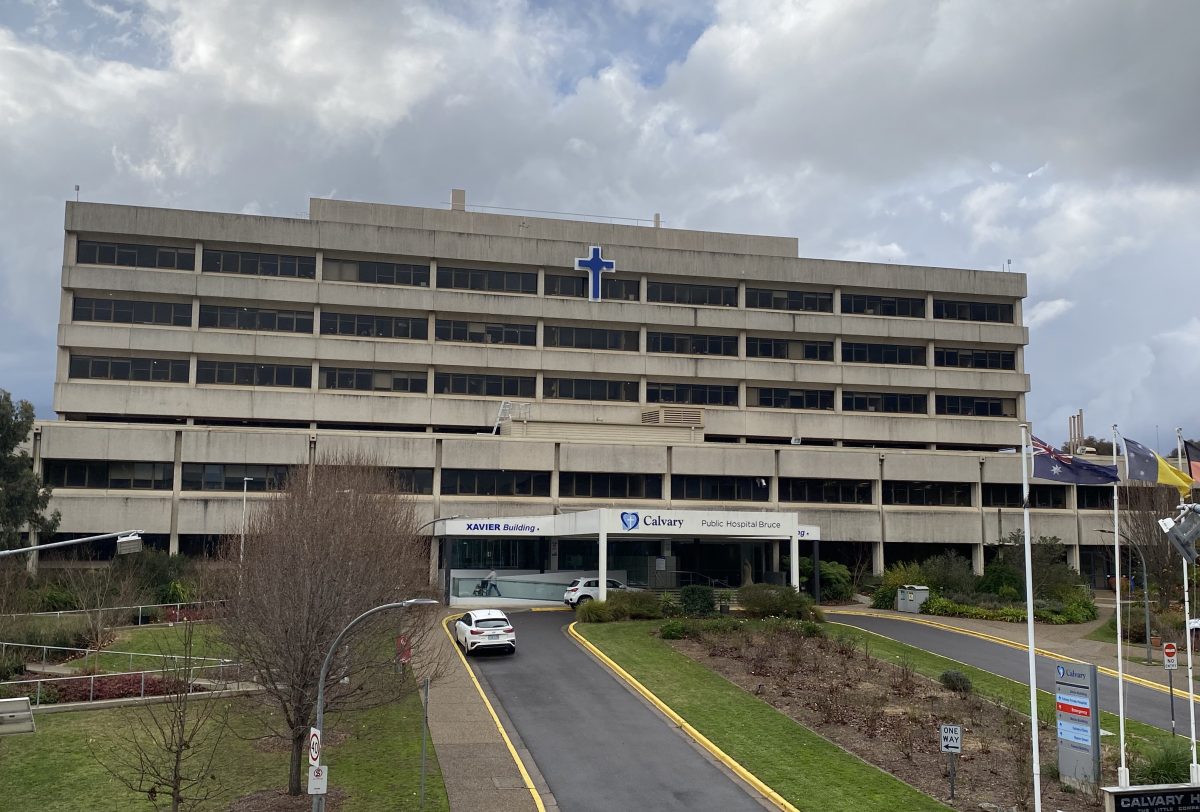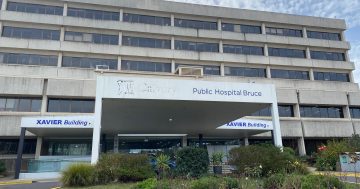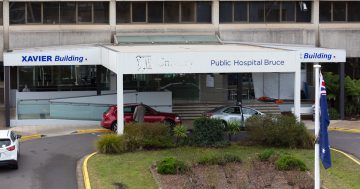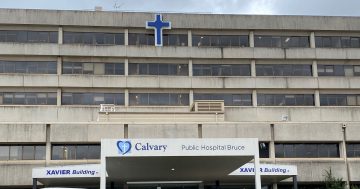
Calvary Public Hospital is now a political football in the Senate. Photo: Claire Fenwicke.
An inquiry by stealth or simply a procedural matter? Either way, the ability of the ACT to govern itself is again being questioned.
National Senator Matt Canavan has got his Plan B for a Senate inquiry into the ACT Government’s forced takeover of Calvary Public Hospital, thanks to the Greens’ support for referring his private senator’s bill, the Australian Capital Territory (Self-Government) Amendment Bill 2023, to the Senate’s legal and constitutional affairs legislative committee.
It comes after the Coalition failed to get support last week for an inquiry by the Senate committee.
Labor says the Greens, already on the nose for delaying the Housing Future Fund bill, have done some deal, but Leader Adam Bandt says it is just normal procedure for a private bill to go to a committee.
Nonetheless, the result is that people will be able to make submissions and the issue will be ventilated on Capital Hill and duly reported, no doubt providing more headlines for the ACT Government to contend with because, as is usually the case, those who oppose a decision will speak loudest.
What Senator Canavan’s move shows is that there are elements in federal politics who refuse to accept that the ACT is self-governing and capable of looking after its own affairs.
The hand of former senator Zed Seselja, whose stand on territory rights contributed to the loss of his seat, is probably at work as well, given his open support for Calvary and presence at times in the public gallery.
Although Senator Canavan may live a long way from Canberra, he, like many other politicians, spends a lot of time here, with some even renting and owning property, which gives them some stake in the place.
He has said that for him, it’s personal as he had a daughter treated at Calvary, but there are ideological objections in the Coalition to a government takeover of a private asset in any circumstance.
In some sense, there is a residual sense of ownership about the ACT that underlines an entitlement to interfere in its affairs.
There is also the possibility of tying the Albanese Government to the takeover and making as much trouble as possible for the Barr Government ahead of next year’s election.
Senator Canavan says he wants to understand why the takeover is necessary and the haste in which it is being done.
But is the Senate the appropriate place for these local issues to be discussed? Would legislation in, say, the Senator’s home state of Queensland similar attract the same sort of attention?
What other decision of an ACT Government may end up facing the same treatment from federal politicians despite the overturning last year of the Andrews Bill, which for years prevented the Territory from even debating voluntary assisted dying?
That was seen as a victory for Territory rights, but Senator Canavan’s success will only embolden others who, for one reason or another, may want to contest the decisions of a democratically elected government.
Yes, constitutionally, the ACT is not a sovereign state, with all the powers and protections that entails, but surely if self-government is to mean anything, its decisions should not come under the official gaze of the Senate on a whim.
Criticise the decision in the media and public forums as much as you like, but at least accept that an elected government is there to make decisions in what it sees as the best interests of its constituents.
In any case, whatever may come out of Senator Canavan’s Plan B, it won’t make any difference to the Calvary outcome.
That rests with any further possible court action or a horrendously expensive compensation payout on those famous “just terms”.
Any inquiry should be conducted by and for the ACT.
And if ACT voters are so opposed to the Barr Government’s decision to remodel health services and run the new northside public hospital, they can let it know at the ballot box.





















